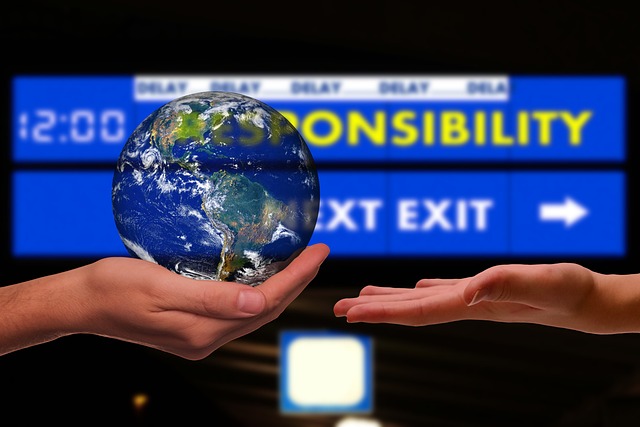Understanding and accurately translating the UK Code of Conduct and Ethics is crucial for translation services aiming to serve the UK market, both legally and ethically. Professional translators with business ethics knowledge and cultural sensitivity are vital to ensuring translated materials guide organizations towards responsible practices globally. Specialized UK Code of Conduct translation services, leveraging native speakers and quality assurance processes, guarantee accuracy, cultural relevance, and adherence to ethical standards in diverse markets. Engaging these services is essential for UK businesses to maintain legal compliance, foster trust, and promote transparency internationally.
In today’s globalized business landscape, ensuring ethical practices across borders is paramount. The UK Code of Conduct and Ethics serves as a cornerstone for responsible corporate behavior, but its effective implementation hinges on precise translation. This article explores the intricacies of translating this crucial document while navigating cultural nuances and legal implications. We delve into best practices, challenges, and case studies, highlighting the importance of professional translation services in upholding ethical standards globally, especially when it comes to the UK Code of Conduct and Ethics.
- Understanding the UK Code of Conduct and Ethics
- Importance of Accurate Translation for Ethical Compliance
- Challenges in Translating Ethical Guidelines
- Selecting Suitable Translation Services for Legal Documents
- Ensuring Cultural Sensitivity in Translations
- Verification and Quality Assurance Processes
- Legal Implications of Inaccurate translations
- Best Practices for Maintaining Ethical Standards Post-Translation
- Case Studies: Successful Translations of Ethical Documents
Understanding the UK Code of Conduct and Ethics

The UK Code of Conduct and Ethics is a foundational document that outlines the expected behaviors and principles for businesses operating within the United Kingdom. It serves as a comprehensive guide, ensuring fairness, transparency, and accountability in various sectors. When expanding a business internationally, including translation services that cater to the UK market, it’s essential to understand this code. Compliance with local ethical standards is not just a legal requirement but also demonstrates a commitment to building trust with clients and partners.
Translation companies, in particular, must grasp the nuances of the UK Code of Conduct and Ethics. This involves ensuring accurate and culturaly sensitive interpretations of ethical guidelines, especially when dealing with diverse client bases. By integrating these principles into their operations, translation services can facilitate smoother business interactions and foster long-lasting relationships within the UK market.
Importance of Accurate Translation for Ethical Compliance

In today’s global business landscape, companies operating across borders must navigate complex ethical considerations to ensure compliance with local laws and standards. One critical aspect often overlooked is the accurate translation of ethical guidelines and codes of conduct. When businesses adopt practices from one jurisdiction and implement them in another, direct translation may not suffice. The UK Code of Conduct and Ethics, for instance, outlines principles that are essential for responsible business operations. However, translating these documents precisely is more than just word-for-word conversion; it involves cultural adaptation to ensure the spirit and intent remain intact.
Accurate translation services play a pivotal role in facilitating ethical compliance by bridging the language gap. Professional translators who possess not only linguistic proficiency but also a deep understanding of business ethics and local cultural nuances can help organizations avoid potential pitfalls. They ensure that the translated materials accurately convey the original meaning, thereby guiding businesses towards responsible practices in international markets. This is particularly crucial when dealing with sensitive ethical matters, as even subtle translation errors could lead to misinterpretations and subsequent legal or reputational risks.
Challenges in Translating Ethical Guidelines

Translating ethical guidelines into different languages presents several unique challenges, especially when aiming to maintain the integrity of the original UK Code of Conduct and Ethics. One of the primary difficulties lies in capturing nuanced meanings and cultural contexts accurately. Ethical concepts often rely on specific societal values and norms, which can vary significantly across languages and regions. For instance, what constitutes “transparency” in one culture might differ from another, requiring careful consideration during translation to ensure the adapted guidelines remain relevant and effective.
Additionally, maintaining consistency throughout a document that undergoes translation is paramount. Different translators or language services may interpret certain terms or phrases differently, leading to discrepancies. Using specialized UK Code of Conduct and Ethics translation services that employ experienced professionals who understand both the source and target languages can help mitigate these challenges. These services often include quality assurance processes to ensure accuracy, cultural relevance, and compliance with ethical standards in the translated documents.
Selecting Suitable Translation Services for Legal Documents

When it comes to legal documents, selecting the right translation service is paramount to ensure ethical business practices are maintained. In the UK, adherence to the Code of Conduct and Ethics is non-negotiable, and this extends to all documentation. Therefore, a translation service that not only offers linguistic expertise but also understands these regulatory frameworks is essential.
Choosing a provider with a proven track record in translating legal texts, especially those related to the UK’s standards, guarantees accuracy and consistency. Look for companies that employ native speakers and have subject matter experts on staff. Such services can provide specialised knowledge of legal terminology, ensuring that vital nuances are not lost in translation and ethical guidelines are strictly followed.
Ensuring Cultural Sensitivity in Translations

In the realm of global business, cultural sensitivity is paramount, especially when relying on translated materials. Ethical translation services, such as those adhering to the UK Code of Conduct and Ethics, play a vital role in preserving nuances and avoiding potential pitfalls. Culture shapes communication, with idiomatic expressions, proverbs, and even subtle language preferences varying widely across regions. Professional translators are trained to navigate these complexities, ensuring that documents, marketing materials, or contracts accurately convey their original intent while respecting local customs and values.
For instance, a phrase that seems innocuous in one culture might carry a different meaning or even be offensive in another. Skilled translators stay abreast of cultural trends and historical contexts, preventing miscommunication and building trust with global audiences. This sensitivity is crucial when entering new markets, fostering strong business relationships, and ensuring your message resonates positively with diverse stakeholders worldwide.
Verification and Quality Assurance Processes

In the realm of global business, ethical practices demand meticulous attention, especially during the translation process. Verification and Quality Assurance (QA) are pivotal steps to ensure that translated documents adhere to the source material’s ethical guidelines, particularly when adhering to the UK Code of Conduct and Ethics. Professional translation services should employ rigorous QA protocols to verify accuracy, consistency, and cultural relevance. This involves cross-referencing terms with industry-specific glossaries, comparing translations with original content, and conducting native speaker reviews to capture subtle nuances and ensure ethical messages remain intact.
For instance, when translating the UK Code of Conduct and Ethics, which often covers sensitive topics like corporate social responsibility and anti-corruption measures, every word must be scrutinized. The translation team should not only focus on linguistic accuracy but also cultural adaptability. This might involve explaining complex concepts in a way that resonates with diverse audiences while maintaining the integrity of the original message. Such meticulous verification processes are essential to foster trust and ensure businesses remain compliant with ethical standards across different markets.
Legal Implications of Inaccurate translations

In the global business landscape, accurate translations are not just a matter of communication; they are legally binding documents that can have significant implications for companies. Inaccurate translations can lead to severe legal consequences, especially when dealing with sensitive matters like contracts, policies, and regulatory guidelines. For instance, in the UK, adherence to the Code of Conduct and Ethics is crucial for businesses, and any mistranslation could result in non-compliance, leading to legal penalties. This is because ethical practices are often underpinned by legal frameworks that must be strictly followed; even a minor deviation can open companies up to liability.
When translating documents related to ethics and business conduct, professional translation services that adhere to the highest standards are essential. UK businesses, in particular, should seek out translation providers who understand the nuances of local laws and regulations, ensuring compliance with the Code of Conduct and Ethics in all their global communications. This proactive approach not only safeguards against legal risks but also fosters a culture of transparency and accountability, which is vital for maintaining ethical standards globally.
Best Practices for Maintaining Ethical Standards Post-Translation

Maintaining ethical standards in a global business environment requires careful consideration, especially when dealing with translations. After all, accurate UK Code of Conduct and Ethics translation services are vital to ensuring that moral principles remain intact across different languages and cultures. One of the best practices is to engage professional translators who not only possess language expertise but also have a strong understanding of ethical frameworks and local cultural nuances. This combination ensures that the translated content accurately conveys the original intent while adhering to the highest ethical standards.
Regular reviews and consultations with experts in corporate ethics are another essential practice. These sessions can help identify potential pitfalls and ensure that the translation process aligns with the organization’s values. Additionally, utilizing advanced translation technologies and tools can streamline the process, allowing for faster verification of translated materials. This ensures that any discrepancies or ethical lapses are caught promptly, enabling businesses to maintain their integrity in a diverse market.
Case Studies: Successful Translations of Ethical Documents

In the global business arena, ethical practices are universal yet their interpretation can vary across cultures. This is where professional UK Code of Conduct and Ethics translation services step in, ensuring that documents maintain their integrity and meaning during localization. Case studies of successful translations reveal several key factors for effective communication. First, these services employ native speakers who understand not just the language but also cultural nuances, preventing potential misinterpretations that could lead to unethical practices.
Additionally, advanced technologies like machine translation are integrated into the process, offering speed and accuracy. However, human oversight remains crucial to ensure these tools capture the subtleties of the source text. By combining these approaches, successful translations preserve the essence of ethical guidelines, fostering trust and ensuring businesses operate with integrity across borders.
Ensuring ethical business practices across global markets requires a thorough understanding and adherence to local regulations, like the UK Code of Conduct and Ethics. Accurate translation plays a pivotal role in this process, as it directly impacts legal compliance and reputational risk. By carefully selecting professional translation services that prioritize cultural sensitivity and employ robust quality assurance processes, businesses can effectively navigate the challenges of translating ethical guidelines. This ensures not only linguistic precision but also maintains the intended meaning and integrity of original documents, such as legal contracts and ethical policies, across diverse languages and cultures.



